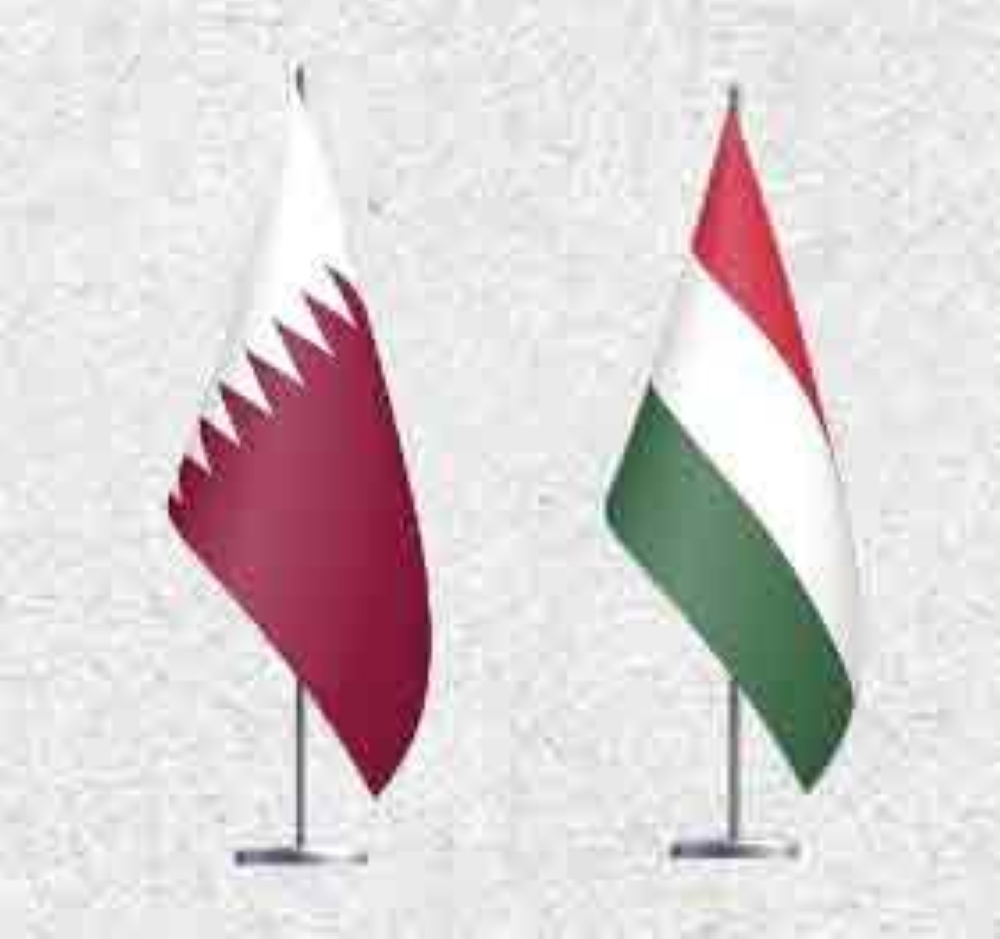Within the framework of Qatar's policy based on building bridges and strong ties with various countries and peoples of the world, His Highness the Amir Sheikh Tamim bin Hamad al-Thani arrived in the Hungarian capital, Budapest Sunday on an official visit to Hungary at the invitation of Hungarian President Katalin Novak.
During the visit, His Highness the Amir will meet with President Novak, Hungarian Prime Minister Viktor Orban and a number of senior Hungarian officials to discuss strengthening cooperation relations between the two countries in various fields, in addition to the most important regional and international issues of common concern.
It is expected that the Amir's visit will contribute to strengthening relations between the two countries, especially in the economic, trade and investment sectors, as well as in the field of energy.
His Highness the Amir's visit to Budapest reflects the keenness of the leaderships of the two countries to strengthen and develop bilateral relations and build cooperation and strategic partnership that serves common interests and aspirations.
Relations between the two countries are based on solid values of respect, mutual trust, political and economic cooperation, and common interests. The two countries have a firm belief in the importance of maintaining international peace and stability, settling disputes through dialogue and peaceful means, and playing an active and influential role in this context at the regional and international levels.
Relations between Qatar and Hungary are close and distinguished at all levels. They witnessed remarkable development over the years due to the mutual official visits . The bilateral relations are organized by a set of agreements and MoU signed between the two countries, which cover cooperation in the political, commercial, industrial, cultural, artistic and tourism fields, as well as sports and youth, air services, avoidance of double taxation and prevention of financial evasion, in addition to cooperation in the fields of energy, economy, business, education, higher education and scientific research.
Qatari-Hungarian relations were established in 1990, at the non-resident ambassadors level. In late 2004, embassy of Qatar was opened in Budapest, and mutual visits continued at various levels between the two countries. These relations were strengthened after the important official visit paid by His Highness the Father Amir Sheikh Hamad bin Khalifa al-Thani to Hungary on June 12, 2002, who was received by Hungarian President Ferenc Madl. During this visit, a number of bilateral agreements were signed.
In the first visit by a Hungarian President to Qatar, President Janos Ader visited Doha in May 2014, during which an official talks session was held at the Amiri Diwan between Qatar and Hungary, chaired by His Highness the Amir and President Ader. During the session, they reviewed bilateral cooperation relations between the two countries and ways of developing them in various fields, in addition to signing an agreement for cooperation in the field of education, higher education and scientific research between the governments of the two countries.
In recent years, Hungarian Prime Minister Viktor Orban paid a number of visits to Qatar, the most recent of which was in last May. His Highness the Amir and the Hungarian Prime Minister held an official talks session at the Amiri Diwan, which dealt with developing cooperation, especially in the areas of economy and investment, in addition to exchanging views on the most important developments of common interest regionally and internationally.
In a previous interview with the Qatar News Agency (QNA), Orban affirmed his country's keenness on building strategic partnership with Qatar in different fields, in light of the growing cooperation between the two countries.
Cooperation in the field of energy is of utmost importance to Hungary, which seeks to purchase Qatari LNG after 2026, he said, adding that cooperation in agriculture will be a valuable opportunity for the two friendly countries and will also boost Qatar's food security efforts. Cooperation between Qatar and Hungary in the field of infrastructure is currently focusing on the air transport sector, he said, pointing out that the two countries are currently discussing the possibility of attracting Qatari investments to this sector, especially airports.
The prospects for cooperation between the two countries appear promising, especially with the mutual interest in developing economic and trade relations and exploring broader horizons for intra-trade. Qataris view Hungary as a leading investment destination, especially in sectors such as the automotive, chemical industries, medicines, infrastructure projects, agriculture, and others. The investment climate in Hungary is also stimulating to joint Qatari-Hungarian projects, and there is great interest on the part of Budapest in facilitating business for Qatari investors. The Hungarian Chamber of Commerce and Industry also supports joint projects.
Hungary is located in Central Europe within the basin of the Carpathian Mountains. It is a landlocked country that does not have access to the sea.
The Hungarian economy is currently based mainly on the services sector, which represents two-thirds of the GDP, followed by industry by 24%, the agricultural and construction sectors. The automotive industry and related industries occupy advanced positions within the industrial sector, as some German and Japanese companies make large investments in this field.
Hungary is actively seeking to attract more foreign investments, especially as it is rich in many natural resources, the most important of which are: bauxite, coal, iron ore, manganese, natural gas and oil. It exports machinery, equipment, agricultural products, food and livestock, and mainly imports fuel and mineral raw materials.

